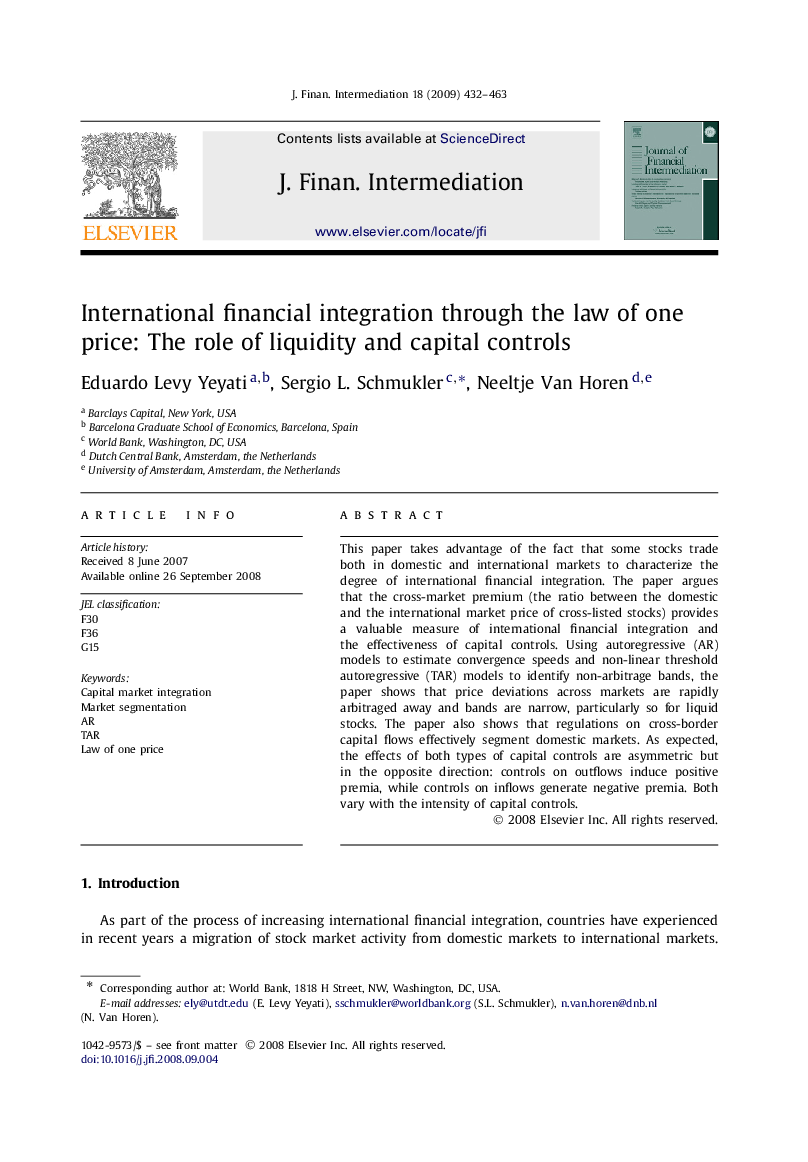| Article ID | Journal | Published Year | Pages | File Type |
|---|---|---|---|---|
| 960730 | Journal of Financial Intermediation | 2009 | 32 Pages |
This paper takes advantage of the fact that some stocks trade both in domestic and international markets to characterize the degree of international financial integration. The paper argues that the cross-market premium (the ratio between the domestic and the international market price of cross-listed stocks) provides a valuable measure of international financial integration and the effectiveness of capital controls. Using autoregressive (AR) models to estimate convergence speeds and non-linear threshold autoregressive (TAR) models to identify non-arbitrage bands, the paper shows that price deviations across markets are rapidly arbitraged away and bands are narrow, particularly so for liquid stocks. The paper also shows that regulations on cross-border capital flows effectively segment domestic markets. As expected, the effects of both types of capital controls are asymmetric but in the opposite direction: controls on outflows induce positive premia, while controls on inflows generate negative premia. Both vary with the intensity of capital controls.
